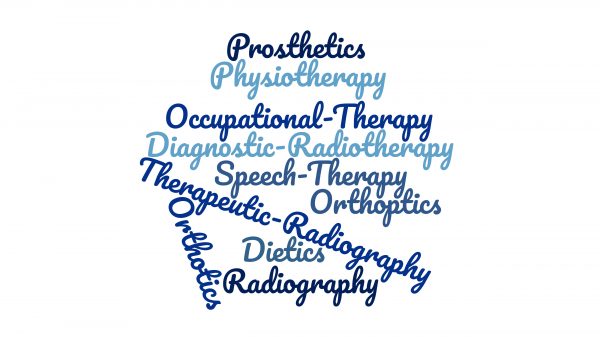Can you see yourself working in the healthcare profession? Maybe you’re already on your way to completing your healthcare degree.
Last year, it was announced that additional financial support is set to be provided for healthcare students through a bursary system.
We’ve done some research and put together some information around the upcoming support which we hope you find useful!
What does the funding look like?
As of September 2020, university students will now receive an additional £5,000 of support each year. This funding will be both non-repayable and non-means tested. In other words, it will be available automatically to those who are eligible full-time healthcare students. This will be offered to continuing students as well as new entrants for 2020 (Council of Deans of Health).
The financial support will not replace the maintenance loan, but will be a healthy addition to help with study costs. A maintenance loan is a repayable payment that students access in order to support living costs. It will be expected that all students will retrieve a tuition fee loan and, potentially, maintenance loan to support living costs alongside the new £5,000 grant.
In this case, you would still be required to pay back your tuition loan, but just like other degree courses, you won’t need to stay repayments until you begin earning over £25,000 per year.
(To read more about the standard tuition loans, maintenance loans and student finance, see here.)
Which subjects are impacted?
According to recent reports by the Council of Deans of Health, this funding will be available for courses in nursing, midwifery and other related health subjects. On top of the £5,000 funding, additional funding of up to £3,000 is available to students in: high-priority subjects; those who need childcare support; and those in regions where current workforce levels are low and there is a greater need for recruitment of healthcare professions.
While all fields of nursing will receive the £5,000 support payment, students undertaking learning disability nursing and mental health nursing will receive an additional £1,000 grant.
Subjects that will also receive the £5,000 funding include the following:

How do I apply?
The grants will be offered by the NHS Business Services Authority (you can visit their website by clicking HERE) and will be made through instalments over the course of each year, rather than in large payment at the beginning of the year of study.
The details on how this will happen are still to be revealed over the next few months, which will also provide more information on how you can apply for the grant. You can keep up to date on the latest information via their website and social media pages:
Facebook: /LearningSupportFund
Twitter: @NHSBSA_LSF
Need advice?
For further reading or to find out more about the new funding for September 2020, check out this link: www.nhsbsa.nhs.uk/learning-support-fund/new-student-funding. You can also browse information on other financial support and check your eligibility at: www.nhsbsa.nhs.uk/learning-support-fund.
Our project partners are also able to offer support and further advice:
- Lancaster University: Health and Medicine Faculty
- UCLan: Faculty of Health and Wellbeing
- University of Cumbria: Institute of Health
- Edge Hill University: Faculty of Health, Social Care & Medicine
If you still have unanswered questions, then please email us via hellofuture@cumbria.ac.uk and we’ll work together to provide support and guidance.
Sources:
- https://www.nhsbsa.nhs.uk/learning-support-fund/new-student-funding
- “New student support arrangements for healthcare students” (Council of Deans of Health)
- https://www.gov.uk/student-finance